How to Tell if a Motorola Phone Is Hacked and How to Fix

Published:
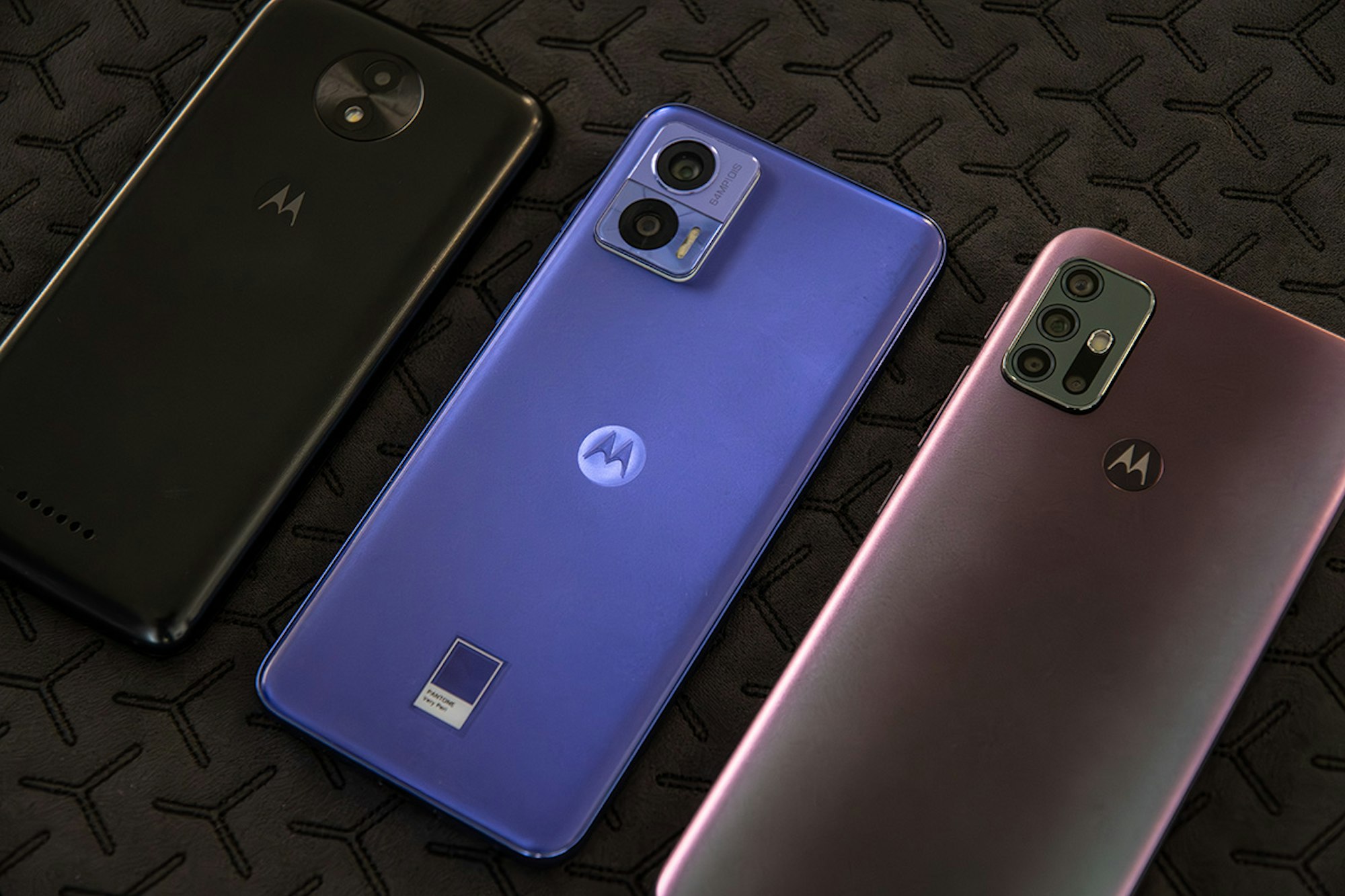
Smartphones have become central to our lives, storing everything from personal photos and conversations to sensitive financial data. This makes them prime targets for cybercriminals, with Motorola phone users being no exception.
As technology evolves, so do the methods hackers use to breach our digital privacy. Knowing whether your Motorola phone has been hacked and understanding how to protect it are crucial steps in safeguarding your digital footprint
This blog post aims to guide Motorola users through identifying signs of hacking, understanding how hackers operate, and taking steps to secure their devices effectively.

Fix a hacked Motorola the easy way
Run a quick malware scan with Certo now and remove any threats taking over your device. Download for free on the Play Store.
How to Fix a Hacked Motorola Phone
If you’re suspicious that your phone has been hacked, there are a few things you can do to get to the bottom of it.
1. Use Google Play Protect
Google Play Protect is an essential tool for Motorola users to help ensure your device remains secure. Built into every Android device, Google Play Protect automatically scans your apps for any that are known to be harmful.
It works silently in the background, checking the apps you install from the Google Play Store to prevent the installation of malicious software. To ensure it’s active and to run an on-demand scan, follow these steps:
- Open the Play Store app.
- Tap the profile icon in the top right.
- Tap Play Protect.
- Tap Scan.
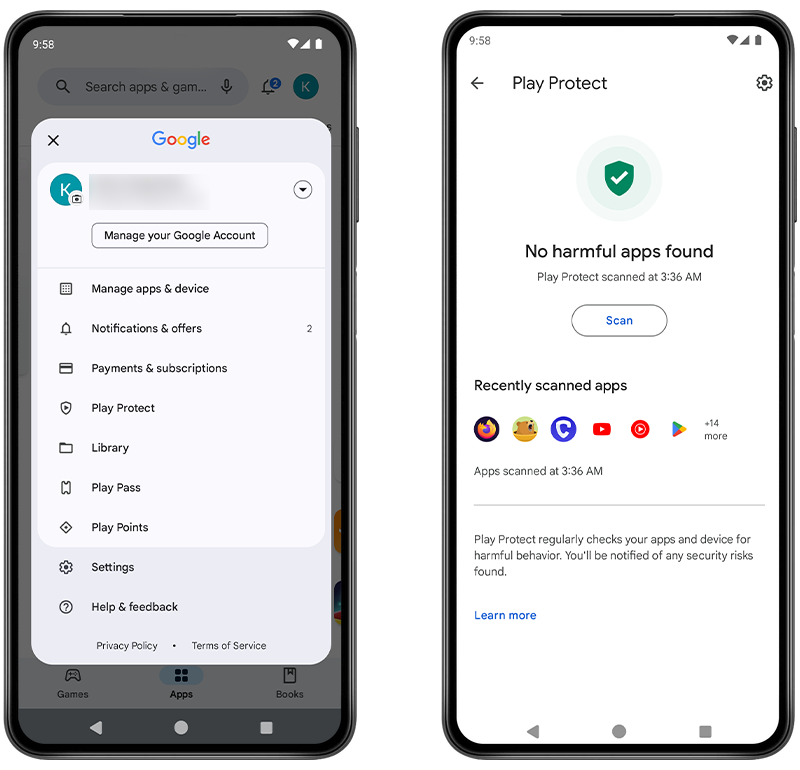
Fig 1. Running a security scan with Google Play Protect.
2. Use Moto Secure
Some newer Motorola models also include an app called Moto Secure. This app is not a complete antivirus solution, but it does provide some essential security checks that are particularly useful for maintaining device integrity.
Moto Secure helps you monitor the security of your device’s firmware, checks if the device has been rooted—which could expose it to additional risks—and provides general device health reports. To use Moto Secure and to run a scan, just follow these steps:
- Open the Moto Secure app.
- Tap Security scan.
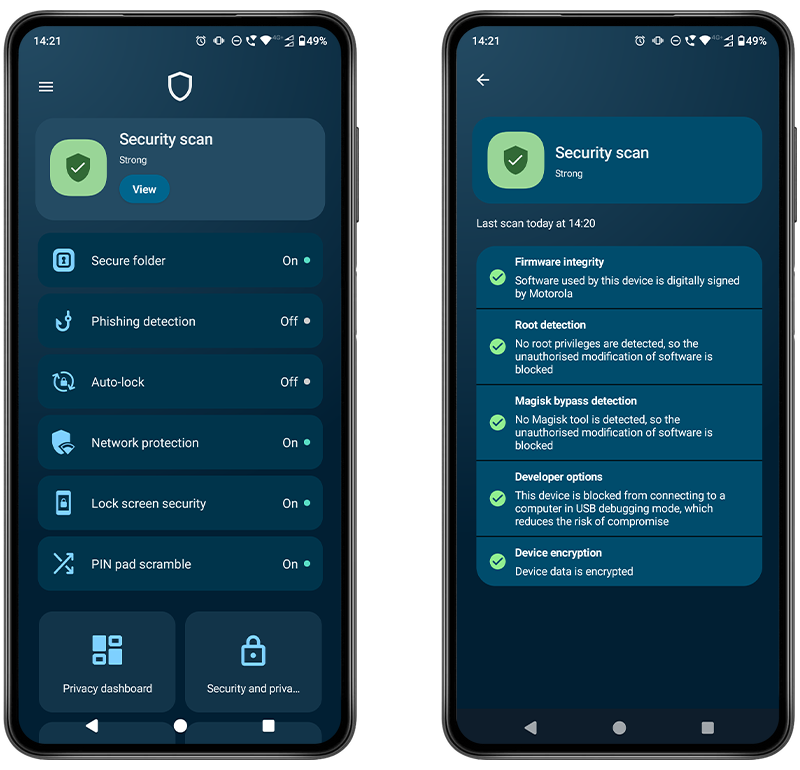
Fig 2. Running a security scan with Moto Secure.
3. Use a dedicated antivirus app
While Google Play Protect and Moto Secure are a great start, utilizing a dedicated antivirus app like Certo Mobile Security can provide a more robust defense against cyber threats.
Certo Mobile Security, which is free to download from the Google Play Store, is designed to detect and eliminate spyware, viruses, and other malware. It offers deep scans of your device, identifies tracking apps, and reviews critical system settings that could be exploited by hackers.
After a scan, if any threats are identified, you can remove them instantly by tapping ‘Remove’, clearing your phone of any malware.
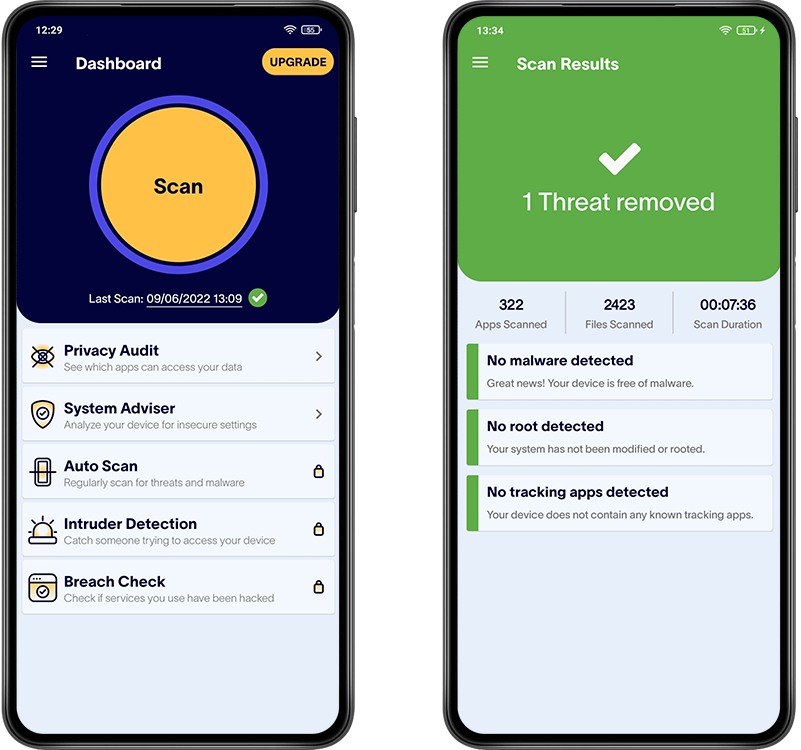
Fig 3. Removing malware from a Motorola phone with Certo.
4. Perform a factory reset
If you’ve tried all the above steps and your Motorola phone still exhibits signs of hacking, a factory reset may be necessary. This method will erase all data and restore your phone to its original system state, effectively removing any and all malware.
Before proceeding, ensure you back up all important data like contacts, photos, and app data to avoid permanent data loss.
To perform a factory reset:
- Open the Settings app.
- Scroll down and tap System.
- Tap Reset Options.
- Tap Erase all data (factory reset) and follow the instructions.
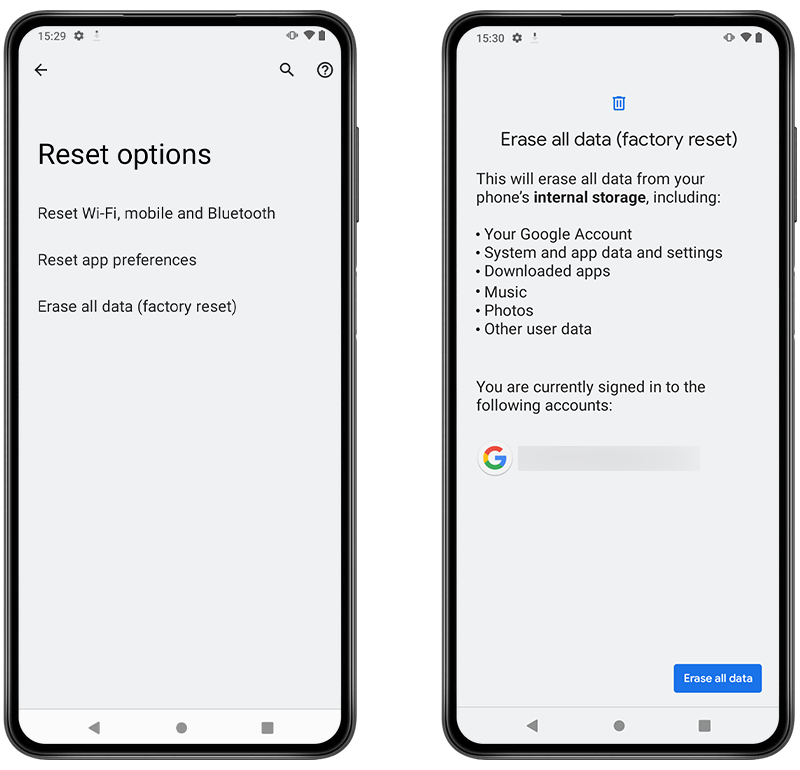
Fig 4. Performing a factory reset on a Motorola phone.
How Hackers Compromise Motorola Phones
Understanding the methods hackers use to access Motorola phones can help you recognize potential threats and protect your device. Here are some common techniques:
☠️ Malware: Malicious software can be inadvertently downloaded from unsafe apps, websites or email attachments. Once installed, it can compromise your phone’s security and send personal information to hackers.
🪝 Phishing Attacks: Hackers often use phishing emails or messages that mimic legitimate companies to trick users into providing sensitive information, such as passwords and credit card numbers.
🛜 Unsecured Wi-Fi Networks: Connecting to open Wi-Fi networks can expose your phone to interception. Hackers can easily capture the data you send and receive over these networks and in some cases even send malware to your device.
⚙️ Exploiting System Vulnerabilities: Hackers exploit known security flaws in outdated software. Regular updates are crucial to patch these vulnerabilities.
📞 SIM Swapping: This involves hackers transferring your phone number to their device, allowing them to intercept SMS-based two-factor authentication codes and gain access to your accounts.
Protecting Your Motorola Phone From Hacking
Prevention is always better than cure, especially when it comes to cybersecurity. Here are some essential tips to keep your Motorola phone secure:
✅ Regular Updates: Keep your phone’s operating system and apps updated. Software developers regularly release security patches to fix vulnerabilities.
✅ Download Apps Wisely: Only download apps from trusted sources, such as the Google Play Store, and read reviews and permissions carefully before installing.
✅ Install an Antivirus App: A good security app will help stop attacks before they happen, protecting your device and personal data.
✅ Use Strong Passwords and Two-Factor Authentication: Enhance your security by using complex passwords and enabling two-factor authentication wherever possible.
✅ Be Wary of Wi-Fi and Bluetooth: Avoid using unsecured Wi-Fi networks for sensitive transactions. Turn off Wi-Fi and Bluetooth when not in use to minimize vulnerabilities.
✅ Avoid Clicking Suspicious Links: Be cautious of phishing attempts. Do not click on links or download attachments from unknown or suspicious sources.
✅ Use a Secure VPN: When connecting to public Wi-Fi networks, use a Virtual Private Network (VPN) to encrypt your data transmission.
✅ Regular Backups: Regularly back up your phone’s data. This ensures that you can restore your important information even if you need to reset your device.
By adopting these practices, you can significantly reduce the risk of your Motorola phone being hacked and ensure your digital well-being.
Wrapping Up
In the interconnected world we live in, the security of our smartphones is more critical than ever. For Motorola users, recognizing the signs of a hacked phone, understanding how hackers gain access, taking swift action if compromised, and implementing preventive measures are key steps in protecting digital privacy and security.
By staying informed and vigilant, you can enjoy the vast benefits of your Motorola phone without falling prey to cyber threats.
FAQs
Can Motorola phones be hacked?
Yes, like any smartphone, Motorola phones can be hacked. Hackers may use various methods such as malware, phishing attacks, exploiting system vulnerabilities, and more to gain unauthorized access.
However, users can significantly reduce the risk by following good security practices like regular updates, using strong passwords, and avoiding suspicious links.
How do I remove a virus from my Motorola phone?
To remove a virus from your Motorola phone, you can start by using Google Play Protect to scan for and eliminate harmful apps. If you suspect deeper issues, consider downloading a dedicated antivirus app like Certo Mobile Security from the Google Play Store.
This app can perform deep scans and remove any detected malware. If these steps don’t resolve the problem, performing a factory reset might be necessary—just be sure to back up your data first.
Does Motorola have built-in virus protection?
Motorola phones come equipped with Google Play Protect, which offers a basic level of protection by scanning installed apps from the Google Play Store and monitoring them for harmful behavior.
Some newer Motorola models also include Moto Secure, which provides additional security features like firmware security checks and device health reports. However, for comprehensive protection, using a dedicated antivirus app is recommended.